Visibility is one of the most crucial factors in running a business. Then again, this can lead to an unfortunate dilemma; it can be expensive to advertise a business, but you also need to spend money to make money.
That is where this list comes in; we have collected the 10 best free business listing websites to advertise your business. Many of the sites listed below also include paid advertising options – but first, you should take a look at their offers for free places to list your business online.
Table of Contents
What you may not know is there’s a lot of sharing of business listing data around the web, and that may even start with a website you’ve never heard of. Don’t worry! We’ve done the hard part, sifting through hundreds of possible places on the web to list your business, and identified the ten most valuable places to get visibility for your business for free.
Skip ahead for important recommendations on how to create good business listings on any platform.
Try out postamatic for local posting automation!
We built Postamatic – a Google Sheets add-on which can help to publish Google Business Profile posts to generate more (and better qualified) local traffic. If that’s something your business could use, the add-on is free; give it a try!
The top 10 free business listing websites in priority order:
1. Google Business Profile
Is anyone surprised Google Business Profile, formerly Google My Business (GMB), is at the top of the list? We’re not! As one of the largest and most visible listing platforms Google Business Profile is our first choice when it comes to getting seen and sharing in-depth information. Here are a few reasons why:
- Google Business Profile connects with customers on both Google Search and Google Maps, giving you double the visibility.
- Google Business Profile allows you to quickly show what your business covers to local consumers seeking services from your industry.
- Google Business Profile drives traffic to your website, individual business locations, and social channels.
Google Business Profile gives your customers a wide view of your business, showing hours, location, reviews and more, giving your customers the information they need. As “74% of consumers visit a store based on information they have found online” an optimized Google Business Profile page can be a huge push for customers. By using this free informational advertising platform to show your business to consumers, you can greatly increase your sales.
We’ve even created a free tool to help you publish Google Business Profile Posts, Q + As, as well as to respond to your Google Reviews for the locations you manage inside Google My Business.
2. Bing Places
After Google, Bing is the most often used search engine in the United States, with 2.55% of the market share. This is due to Bing being the default search engine on Windows Devices. Usually, those who aren’t the most tech-savvy end up keeping Bing as the default browser on these devices and discovering they like it.
Another reason to look into Bing Places is the demographics of users who tend to use Bing. Bing users tend to be over 35 and are more likely to be 55 to 64. These users also have an annual combined household income of over $100,000. By using Bing places you can have a more targeted platform for these specific demographics.
3. Facebook
With an estimated 2.89 billion users Facebook is one of the top platforms to advertise your business for free. This amount of users makes Facebook a great place to begin your social strategy for your business in addition to giving your customers a visible place to show different aspects of your business.
Similar to Google Business Profile, you can show hours, locations, and services. However, Facebook also gives you a greater ability to interact with your customers. Having a listing on Facebook and interacting with customers here can increase your customer acquisition and retention since studies have shown 26% of people between 18 to 34 prefer to contact a company through social media.
4. Yelp
Continuing our emphasis on customer experience and retention, we have included Yelp in our number 4 slot. Yelp is a popular customer-review website. An average of 142 million users visit Yelp each month giving a great amount of visibility to your business. Yelp is also particularly beneficial to local businesses.
A study found that 92% of consumers make a local purchase after visiting Yelp. Yelp is the new “word-of-mouth” system in our digital age and we’re here for this ever-evolving way of marketing.
5. Apple Maps
With hundreds of millions of users in over 200 countries, we can’t see a reason not to have your business listed on Apple Maps. Apple Maps offers users the ability to explore whatever city they’re in, giving them several options during a search, one of which could be your business.
Apple Maps also shows Yelp reviews on its business listings, which highlights all of those nice reviews you’ve been getting from satisfied customers!
6. Foursquare
You may remember Foursquare as a social networking app to share locations with friends. In recent years, it has shifted to being a location-data powerhouse.
Foursquare aggregates business location data and provides it to other businesses and applications, including Uber, AirBNB, and Apple Maps. Make sure your data is correct at the source, so it will be accurate in apps across the Internet.
7. Dun & Bradstreet
Dun & Bradstreet is a company that provides commercial data for businesses. While you may not be looking for b2b customers, D&B is a core data provider to several other consumer business directories.
When you create a free listing on this site, you’re creating accurate data at the source, ensuring propagation of good data about your business elsewhere on the web and stronger reinforcement signals for search engine crawlers.
8. Yellowpages
Yellowpages.com which has now been rebranded as YP.com comes in at our number 9 slot. This is the new and improved version of the giant phonebook your parents used. Under pressure from the likes of Google and Yelp, Yellowpages has a fresh look and more social content and features.
They also distribute listings to a number of syndication partners. The site itself currently gets 29 million visits per month – a strong directory to leverage!
9. LinkedIn
LinkedIn isn’t exactly a place where people go to look for businesses, but it does offer rich business listing functionality, and the domain carries a lot of authority.
LinkedIn is one of the biggest platforms for decision-makers within a company like executives and CEO, so a listing here is valuable for business-to-business exposure, and advertising efforts are well supported by robust company pages.
10. Find your Industry's vertical directory
In this digital age, we live in a world with a wealth of information and specialization. That is why it is important to find a directory that is specific to your business.
Run a search in Google for your business category (“ice cream shop” or “event planner”) and look for websites that help people find the right business. For lawyers, you’ll find the site Avvo, for doctors there’s Healthgrades.
Many verticals have their own business directory websites that get lots of traffic and can bring you tremendous visibility with your target market.
Tips for optimizing business listings
Be accurate and consistent
If you have a registered business name, use that as your business name in all cases for each directory.
Use the same spacing, capitalization, and punctuation. Some sites will verify your information with public business registration data – consistency will help directories know they’re all talking about the same business, and that consistency helps your search ranking.
Fill out everything you can
More information helps you get found and makes your listing more useful to searchers, especially the basics! Absolute basic listing information would include;
Essential Information:
- Name
- Address
- Phone Number
- Hours
- Industry Category
Best Practice (Not Required)
- Photos (Logo & Store/Office)
- Amenities
- Founding Date
- Products/Services
- Specializations
Remember, your goal is not just to have your listings show up; you want people to visit your business after reading your listing!
Reinforce Products & Services
Platforms like Google Business Profile allow you to add products, services, and descriptions (even price!) to your GBP listings, which can be immensely helpful for encouraging clickthrough.
Reinforce location page information
If a location page includes unique information which is not currently on the business listings on other platforms, add it elsewhere too! Things like:
- Products & Services
- Facilities & Specialists
- Financing & Customer Support
Why Should You list your business?
There are many benefits to getting your business listed on other websites. Four important benefits of free online business listings are:
1. Links
Links pointing to a website are a major factor in how that site ranks in search engines. I would say the most important factor, but linking is a complex and nuanced topic. Links are not all created equal.
Where a link comes from is important. For example, a link from the home pages of nytimes.com is worth a lot more than a link on a page buried deep within a blog like this one. And some websites put a “nofollow” attribute on links. This attribute is a way of telling search engines not to follow nor associate value with a link.
However, there is still some SEO value in a nofollowed link, in particular, because user behavior is also a factor in Google ranking. Matt Cutts of Google explains more about the value of nofollow links here.
2. Website Traffic
This one is kind of obvious, but your listing will include a link to your website, which will result in more traffic.
Many consumers like to visit a website before visiting a business. If yours isn’t listed in several locations and databases online, you could be losing out on “free” traffic to your website, which tends to limit revenue potential.
3. In-Store Traffic
Often consumers start researching a product or business online, but continue their research nearer to their final purchase decision by visiting your store.
Ensure people can find your business wherever they’re doing their research online by listing your business in the free places we’ve listed above.
This can be especially powerful for businesses with both ecommerce & brick and mortar retail locations, as it provides customers with more information as well as more opportunities to convert without belaboring their decision.
4. Citations (Name, Address, Phone Number)
Citations are references to your business that include your business name and some sort of geographic identifier, like a phone number or street address.
Citations are one of the signals Google uses to determine ranking for local listings.




